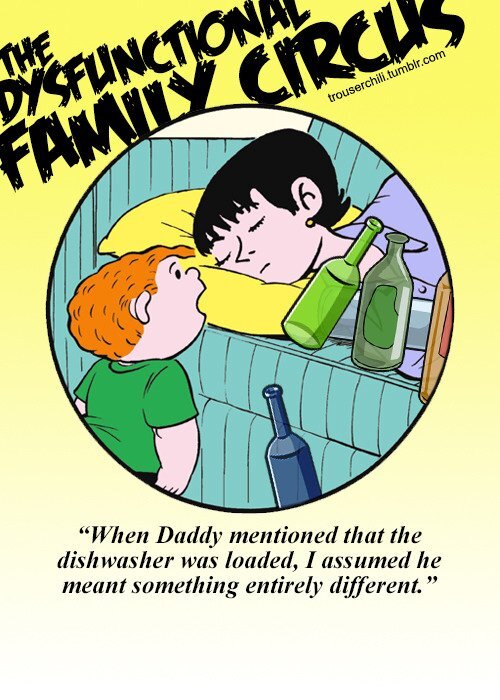-
Posts
2,575 -
Joined
-
Last visited
-
Days Won
6
Content Type
Profiles
Forums
Events
Everything posted by unicorn
-
Once you sing something, how can you unsing it? 😉
-
What I meant is that he can criticize his parents all he wants, without worrying about his financial security should his parents disinherit him.
-
Well, I guess he married a billionaire, so he doesn't need to care about his inheritance. 😉
-
Correction from the previous post: It looks as though that affiliate's webpage has a (probably Freudian) typographical error. His middle name is Dean, not Dead. https://www.the-independent.com/news/world/americas/crime/texas-man-arrested-sweatshirt-woman-death-b2903498.html
-
https://fox8.com/news/wanted-man-wearing-i-will-put-you-in-a-trunk-sweatshirt-arrested-in-suspicious-death-of-woman/ "AZLE, Texas (WJW) — A wanted man was reportedly found and arrested following the “suspicious death” of a 37-year-old woman in Texas, and the outfit he was wearing for his booking photo shows a chilling message. Kruz Dead Wanser was taken into custody on Jan 15, according to an Azle Police Department report. He was a person of interest in the death of 37-year-old Margaret Pennington, whose body was found inside a home on Jan. 11. Once in custody, he was charged with the following, according to police: Tampering with or fabricating physical evidence with intent to impair a human corpse, possession with intent to deliver a controlled substance, possession of a controlled substance and parole violation. In his booking photo, his sweatshirt reads the following: “I will put you in a trunk and help people look for you. Stop playing with me.”...". Hopefully (assuming he's guilty, as it appears), he'll be incarcerated forever this time. "Dead" is quite literally his legal middle name. Some people probably should never have been born...
-

Do you enjoy "What do they look like now?" articles?
unicorn replied to unicorn's topic in The Beer Bar
Here's one who kept his looks into his 60s! -
I wonder what could have prevented the "Düsseldorf incident." Would changing browsers have stopped what appears to be phone spying on me, even when turned off? Do I need to enclose my phone in some kind of a box? Would that even work?
-
Thanks. I looked him up in Wikipedia, and I assume you're talking about: "Late in his career, Naroditsky was one of many prominent chess players who were the target of unsubstantiated cheating accusations by Vladimir Kramnik. Kramnik's allegations were condemned by many other professional chess players and prompted FIDE to open an ethics investigation against him...". Even unsubstantiated accusations can wreck havoc on a person. Accusations are so easy to make, and often difficult to disprove.
-
I do #'s 2-4. What's a brave browser?
-
https://people.com/chess-grandmaster-daniel-naroditsky-had-dangerous-mix-of-drugs-in-system-at-time-of-death-at-age-29-11836092 "Daniel Naroditsky's cause of death has been revealed months after the chess grandmaster and commentator died at age 29. The North Carolina Office of the Chief Medical Examiner confirms to PEOPLE that Naroditsky's toxicology report showed that he had taken a mix of drugs prior to his death, including substances such as methamphetamine and amphetamine. Traces of 7-hydroxymitragynine and mitragynine were also discovered in Naroditsky's system, both of which are known to be common ingredients in the opioid-like drug kratom. The late YouTuber died from "accidental poisoning after ingesting a drug cocktail," the medical examiner's office confirms to PEOPLE...". Another reminder of the dangers of mixing drugs... 😢
-

UK to Consider Male Circumcision as "a potential form of child abuse"
unicorn replied to PeterRS's topic in The Beer Bar
I hate to think of what might have happened to any escaped POW who did get recaptured. That being said, they would definitely have been known to be recaptured prisoners. My father and paternal grandfather were in the Belgian resistance during WWII, and I think they'd have been shot had they been captured (especially my grandfather, who was a colonel). They helped some Jews escape, smuggled equipment, engaged in sabotage, etc. -
You may be right. Wikipedia isn't always the most reliable source of information. If you live there, you may know better.
-

UK to Consider Male Circumcision as "a potential form of child abuse"
unicorn replied to PeterRS's topic in The Beer Bar
Nor in your childish belief that majority opinion equates with fact. -
From Wikipedia: "...In the United States, Canada, Armenia, Romania, the Netherlands, Southeast Asia, and Australia, it is celebrated in October to coincide with National Coming Out Day on 11 October and to commemorate the first and second Marches on Washington in 1979 and 1987 for LGBTQ rights. In the United Kingdom it is observed during February; in the UK this coincides with a major celebration of the 2003 abolition of Section 28. In Berlin, the capital of Germany, it is known as Queer History Month and is celebrated in May...".
-

UK to Consider Male Circumcision as "a potential form of child abuse"
unicorn replied to PeterRS's topic in The Beer Bar
Nothing new. -

UK to Consider Male Circumcision as "a potential form of child abuse"
unicorn replied to PeterRS's topic in The Beer Bar
Well, you lied again when you said you were ending the discussion. It's extremely childish to stay entrenched in one's position when presented with hard facts which disprove one's opinion--just like Trumpers and MAGA-heads. Your "arguments" are simply (1) Most parents follow the father's lead, and most men aren't cut, (2) Lies about a fake study, and (3) Obviously completely irrelevant side-tracks about Laos, etc., which have nothing to do with the facts at hand. Well, you're not alone in your childishness. A majority voted for Trump, ignoring undeniable evidence that he's a liar and a fraud (criminal conviction for fraud, repeating for 11 years that he has a health care plan but not divulging it, obvious lies such as his statement that immigrants eat pets, etc.), so the majority must be right, according to you. You just go with the majority and don't care to even consider the facts. -

UK to Consider Male Circumcision as "a potential form of child abuse"
unicorn replied to PeterRS's topic in The Beer Bar
Yes, it's the same in that you refuse to acknowledge indisputable facts, and believe that opinion overrides facts. -

UK to Consider Male Circumcision as "a potential form of child abuse"
unicorn replied to PeterRS's topic in The Beer Bar
Only an abject fool would think that scientific facts change on the basis of political boundaries or due to public opinion. I won't hold my breath waiting for you to come up with studies to dispute the ones I referenced. -
Well, I do follow the Facebook stories of each of the married pair, but the music festival was a couple of months ago, if I'm recalling correctly, so that's what made the YouTube suggestion feel super-creepy to me. As a matter of fact, the frequently-traveling (and very hardy) couple just got back from French Polynesia (we hadn't connected seen each other in between the two trips, as my husband and I were in Antarctica). I can hardly imagine doing many of the things they'd done, such as doing a 100-mile trek to Everest Base Camp in one week (!!), and hiking to the top of Mount Whitney (4421 m) and back in one day(!!!). I had to nurse them back to health after the last one. If I ever make it to the top of Mount Whitney, it'd have to be by mule.
-
-
Because of my concern of conversations being spied upon, I don't own any of those spying machines such as Alexa. But last night we had some friends over for dinner and cocktails. One of them recently went to Düsseldorf for some music festival, and I asked him some questions about the city (which I have passed by in the past but never visited). This morning, the first suggestion I found from YouTube videos was a video on what to see in Düsseldorf. We're taking a Danube cruise in May, and I have searched for things to do in Vienna, Salzburg, Innsbruck, and Hallstatt, as well as made hotel reservations in Austria, Budapest, and Moldova, but never any searches in Germany, much less northern Germany or Düsseldorf. My phone wasn't on while we were together (albeit not powered off). We are friends on Facebook and Instagram. Anyone here have any idea as to why YouTube gave that suggestion? Or is it just a creepy coincidence (researching future destinations in general is one of the things I do on YouTube, but, again, nothing ever near Düsseldorf or the Ruhr Valley in general)?
-
I enjoy these James Brown "I Feel Good!" pranks...
-

UK to Consider Male Circumcision as "a potential form of child abuse"
unicorn replied to PeterRS's topic in The Beer Bar
I provide actual scientific facts, with links to actual data, and you counter with a preposterous lie! Shameful! You should get in bed with @Moses. You two deserve each other. 🤮 -

UK to Consider Male Circumcision as "a potential form of child abuse"
unicorn replied to PeterRS's topic in The Beer Bar
What an outrageous, insane lie. What's the link to the study? More anti-circumcision BS, once again.






